We help students engage with immigrant and refugee peers, break down stereotypes, and create welcoming spaces for everyone in our schools and communities.
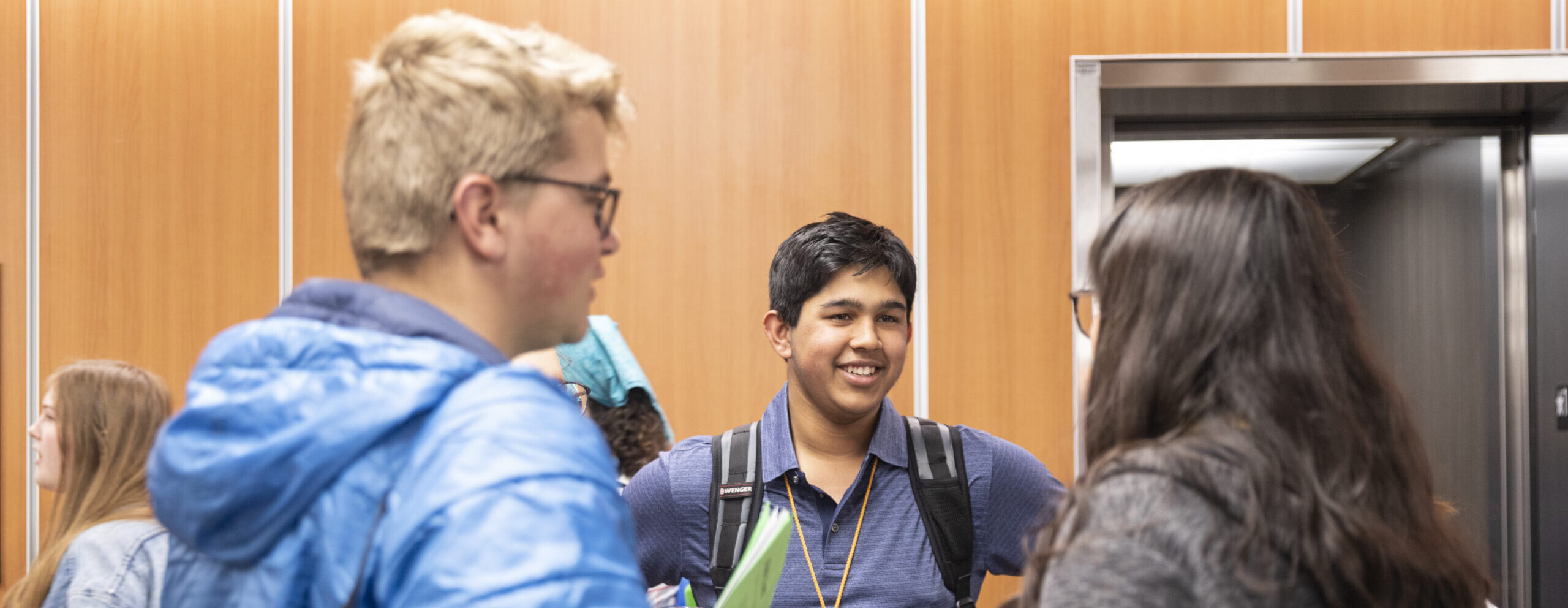
Jump to a section:
Defining Terms
While immigrants and refugees are often discussed together, they refer to different experiences. Using the appropriate terms can help us better understand and connect with these populations (all definitions provided by the International Rescue Committee):
- Refugee: A refugee is someone who has been forced to flee his or her home because of war, violence or persecution, often without warning. They are unable to return home unless and until conditions in their native lands are safe for them again. An official entity such as a government or the United Nations Refugee Agency determines whether a person seeking international protection meets the definition of a refugee, based on well-founded fear.
- Asylum seeker: Someone who is also seeking international protection from dangers in his or her home country, but whose claim for refugee status hasn’t been determined legally. Asylum seekers must apply for protection in the country of destination—meaning they must arrive at or cross a border in order to apply. Then, they must be able to prove to authorities there that they meet the criteria to be covered by refugee protections. Not every asylum seeker will be recognized as a refugee.
- Immigrant: Someone who makes a conscious decision to leave his or her home and move to a foreign country with the intention of settling there. Immigrants often go through a lengthy vetting process to immigrate to a new country. Many become lawful permanent residents and eventually citizens. Immigrants research their destinations, explore employment opportunities, and study the language of the country where they plan to live. Most importantly, they are free to return home whenever they choose.
- Migrant: Someone who is moving from place to place (within his or her country or across borders), usually for economic reasons such as seasonal work. Similar to immigrants, they were not forced to leave their native countries because of persecution or violence, but rather are seeking better opportunities.
Note it is never appropriate to ask someone, even close friends, about their citizenship or immigration status. Ensure people know you are a safe person with whom they can share their stories, and allow them to chose to share their history or background with you rather than putting them on the spot.
While there are many different definitions of immigrant or immigration justice, we like these seven principles outlined by AFSC:
- Immigration Justice: humane economic policies to reduce forced migration; protection of labor rights of all workers; a clear path to citizenship for undocumented workers; respect for civil and human rights of immigrants; demilitarization of the U.S.-Mexico border; family reunification a top priority; and ensuring immigrants and refugees have access to services. (AFSC)
DACA
One program that is frequently in the news relating to immigration is DACA. Here are a few additional definitions to explain the background behind DACA and Dreamers:
- Undocumented: Anyone residing in any given country without legal documentation. It includes people who entered the U.S. without inspection and proper permission from the government, and those who entered with a legal visa that is no longer valid.
- DACA: the Deferred Action on Childhood Arrivals (DACA) program announced in 2012 by President Obama which shields some undocumented immigrants from deportation.
- Dreamers: Immigrants who were brought to the U.S. by their parents when they were young without legal documentation, and have grown up in American society. They are the people most affected by DACA.
In order for Dreamers to be protected by DACA, you must register with the government, pay taxes and be enrolled in or graduate from school. You also may not commit crimes or your DACA status may be revoked. Dreamers are encouraged to get legal advice for registering and maintaining status with the government. See a guide for DACA renewal from Informed Immigrant here.
On June 18, 2020, the Supreme Court blocked the Trump administration’s attempt to end DACA in a 5-4 ruling that has been cautiously celebrated by immigration justice activists. The ruling maintains the program and allows DACA recipients to renew membership, which offers them work authorization and temporary protection from deportation. The ruling leaves open the possibility that the Administration could still end DACA in the future if they give a proper justification.
For more background on DACA and the Dreamers, read this article by the Anti-Defamation League.
Local Actions to Advance Immigration and Refugee Justice
- Learn more about the immigration history of your city, region or state. When and how did white people come to live there? What Native tribes and peoples lived there before white settlers? How does your family fit into the immigration story of your city or state? What groups have immigrated to your city or state in the last 5-10 years, and what were some of the root causes that led to this migration? Learning your local history is a great place to start exploring and understanding more deeply the topic of immigration.
- In order to become a better ally with immigrants, find ways to connect with the local immigrant community so you can support their efforts and build authentic relationships. Check out the list of organizations at the bottom of this page for some ideas, or do some research of your own. Once you’ve identified local immigrant-led groups, find out how they want your help and support. Show up in ways they ask.
- ICE (Immigration and Customs Enforcement) has detention facilities in all 50 U.S. states. ‘Facilities’ is a nice word for these places, which really are more like jails. Immigrants are held there and not able to leave, often for long periods of time (averages are 3-9 months), and lack basic access to things like books, schooling, and visitation from family members or advocates from the community. Consider holding a vigil to raise awareness; organize a book drive; or start a detention visitation group to support immigrants detained locally. (These ideas were provided in part by the AFSC).
- Have you ever been the new kid at school? It can be a daunting experience for anyone. Imagine now that not only are you the new kid, but you are also a refugee and living in a new country, and maybe even learning or speaking a language that is not the one you speak at home. Like all of us, refugee youth need friends and allies when they join a new community. Talk with your school administration about how your club can partner with them to form a welcoming and inclusive group of people so that when a new refugee student arrives on your campus, they have an immediate circle of support.
- Ensure that welcoming new immigrant or refugee students to your school or community isn’t just about showing them around and being an ally in their new environment — your club or student group should strive to learn more about the people and culture of those joining your community. This is best done by hearing from students directly about their experiences, and not creating stereotypes based on books, movies, or other sources. Once a new student has had time to find their bearings, invite them to share more about where they come from and their journey to your school and community. This could be at a club meeting, or a special event. Let them lead in designing any event or space, and limit the audience to whatever they are comfortable with. If they are not interested in sharing, honor these feelings and wishes and do not push them. The most important thing is to ensure they know you are interested in hearing their story if and when they are ready to share.
- Achieving immigration justice requires action from the U.S. Congress to create a path toward citizenship for undocumented people. Research the political positions of your area’s representative and your state’s two senators. Consider starting a letter-writing campaign or other steps to push elected officials to take action on immigration. Make your voice as a future voter heard by those in power.
Videos to Explore Immigration Justice
Stay up to date for future student-generated videos on this topic and more by subscribing to YCD’s YouTube channel here.
Teens Talk: The AAPI Experience in the US
What really unites the AAPI community in the US? Is it shared culture, experiences, or something else entirely? In this episode, we challenge the AAPI label by diving deep into four diverse perspectives, including our host’s. Spanning from New Jersey to Hawaii, with roots in various countries of origin, their experiences couldn’t be more different. But will we uncover common threads that weave them together?
Immigrant Youth Share Their Stories
Hear a conversation between two immigrant youth as they share their immigration stories, and discuss what it was like for them to adjust to life in the United States. This conversation features Angel, who immigrated from Mexico at age 3, and Raima, who immigrated from India at age 10.
Teens Talk: Building Community in a Diaspora
Host Lameese Makkawi is joined by Wafa Saeed to discuss what a disapora is, and how to build community on an international and distributed level.
Teens Talk: Immigration Reform
In this first episode of the Teens Talk podcast, Board member Elizabeth M. interviews activist Marissa Molina about immigration reform and DACA, and what immigration justice looks like.
YCD Workshops Supporting Immigrant and Refugee Youth
Below are example workshops YCD has hosted in the past through our conferences for students and educators; contact us to request more information or connect with a presenter.
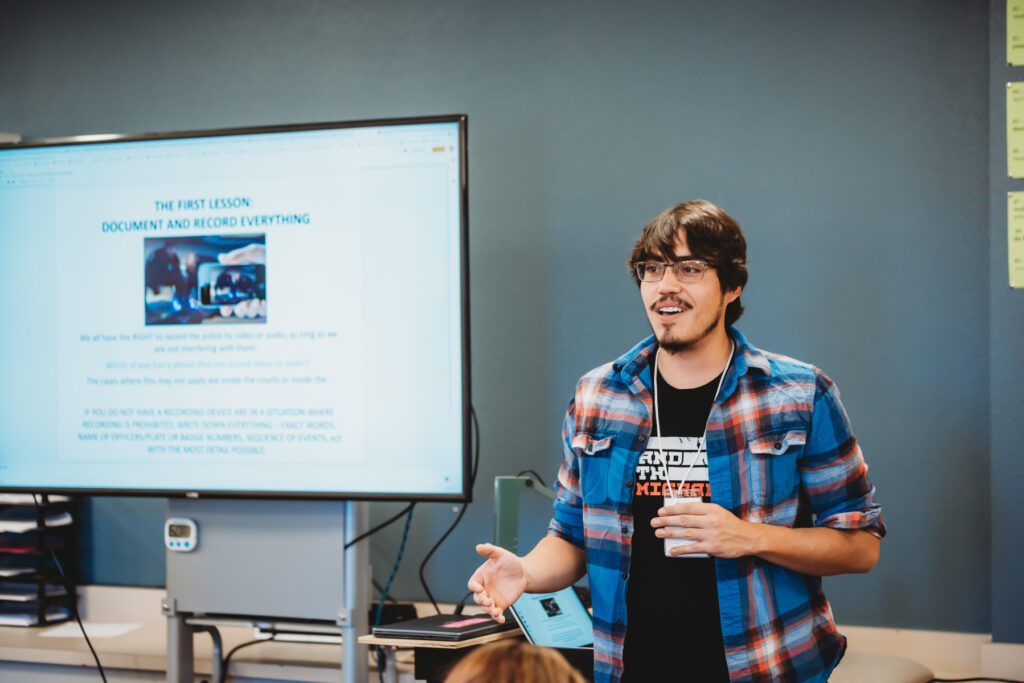
A Day in the Life of an Undocumented Student
What is it like to be an undocumented student living today in a divided America? A panel of college students will share stories of their hopes, fears and dreams in an effort to help conference participants understand the dilemma many undocumented students face today. They will also provide suggestions and resources on what we can do to provide a safe space for undocumented immigrants so that they can feel protected and empowered to continue their education or chosen work paths.
Presented in different variations by: Colorado Immigrant Rights Coalition, Denver and Gypsum, CO; and New Mexico Dream Team, Albuquerque, NM
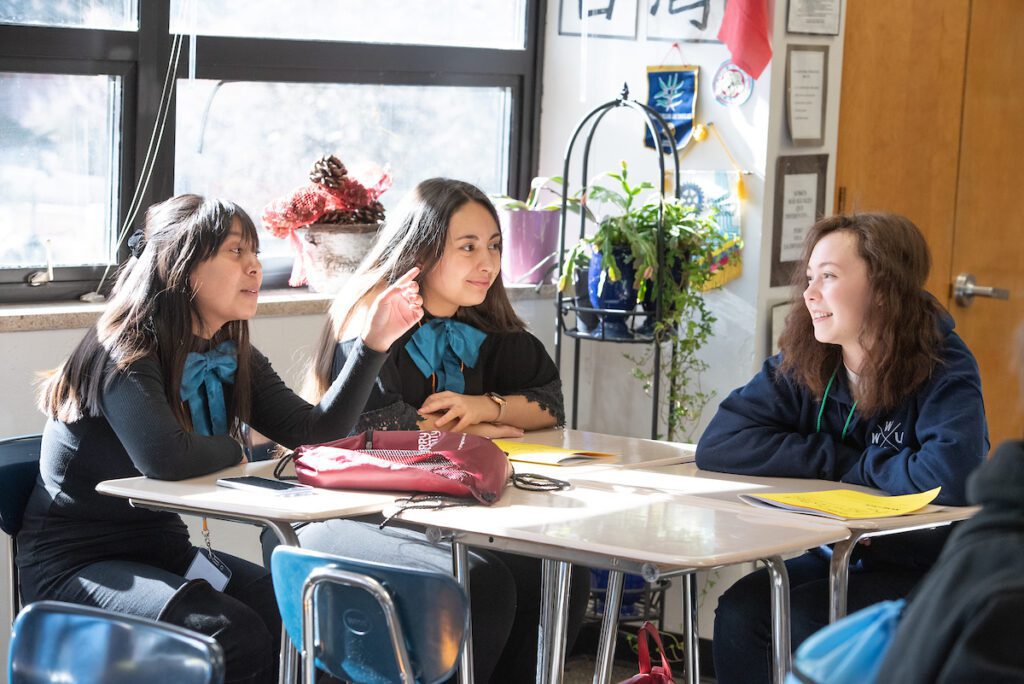
Challenging Linguistic Prejudice
What assumptions do you have about language diversity? Participants will be asked to reflect on how linguistic prejudice is still largely accepted in society (demonstrated with several current media examples) whereas other types of discrimination are not. The workshop will end with discussing real world consequences of linguistic prejudice, and how this form of prejudice impacts our lives today.
Presented by The Roadrunner Linguistic Society at the University of New Mexico, Albuquerque, NM
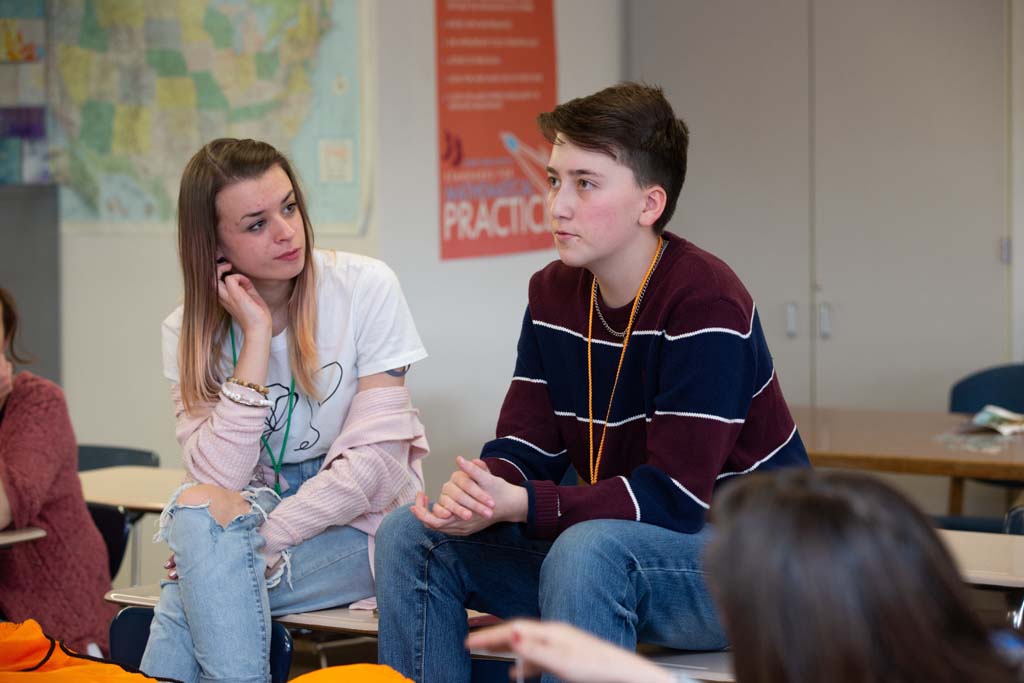
Human Trafficking of Youth in Colorado
Youth and young adults hold specific vulnerabilities directly tied to their identity. These vulnerabilities connect to age, adult authority relationships, access to economics, sexual and gender identity, race, color, education, etc. This training will explore the root causes of the crime of human trafficking and the inequalities that can lead to trafficking, to help participants recognize the realities of human trafficking.
Presented by the Laboratory to Combat Human Trafficking, Denver, CO
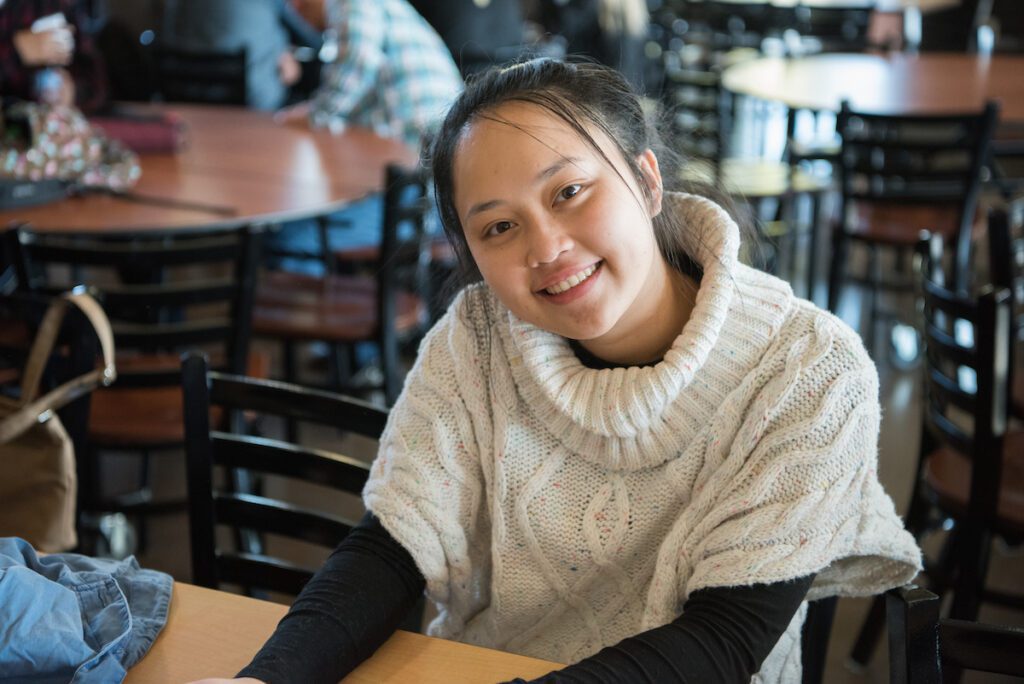
Understanding Refugees
Led by the Director of Advocacy for the Immigrant and Refugee Center of Northern Colorado, students in this workshop will learn about the process of refugee resettlement into the United States and investigate questions of social, political, and economic integration of refugees. Questions are encouraged!
Presented by the Immigrant and Refugee Center of Northern Colorado, Fort Collins, CO
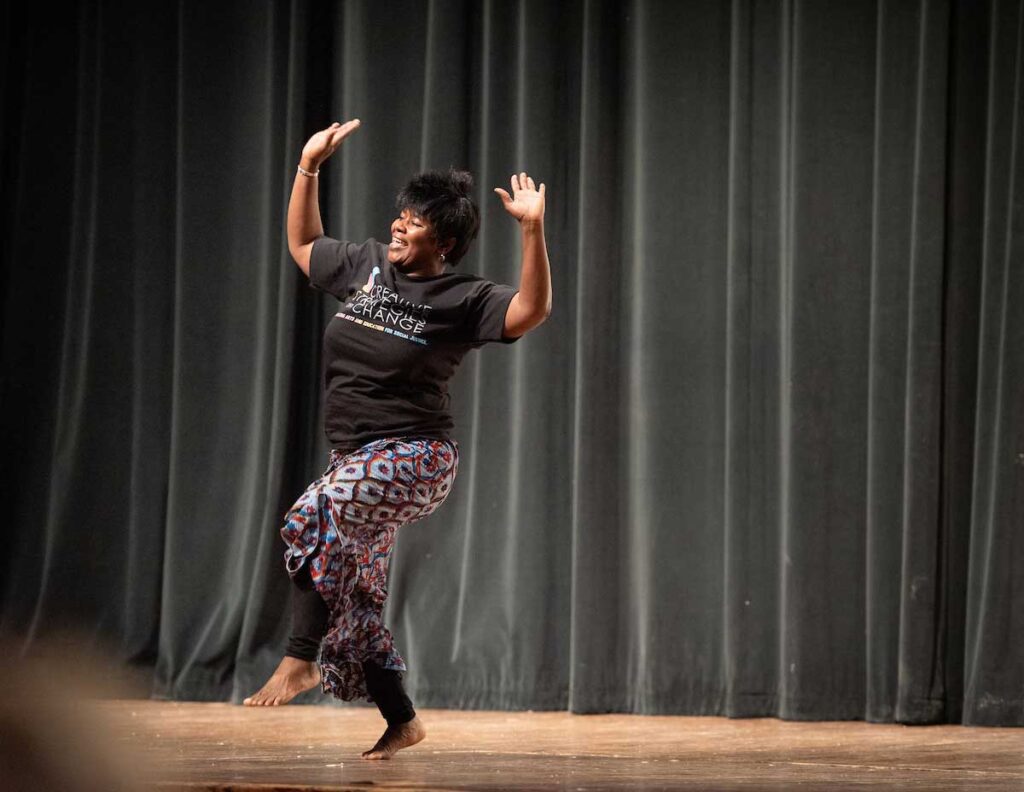
West African Dance
Come dance with the one and only Djeneba Sako from Mali, West Africa. Djeneba will share traditional and contemporary dances and choreography from Mali and get you moving!
Presented by Creative Strategies for Change, Denver, CO
Immigrant and Refugee Justice Leaders Who Inspire Us
Here’s a list of folx who are leading the conversation on immigrant and refugee justice today. They inspire and inform our work. Follow them on social media, or seek out opportunities to hear them speak to dig deeper on these issues.
Who inspires your work on immigrant and refugee justice? Share your points of inspiration with us on Twitter:
.@ycdiversity My work on immigration justice is inspired by
Tweet
Books for Students Sharing Immigrant and Refugee Stories
Here is a list of recommended books for students and teens that provide first-person stories about immigration and being a refugee, or about the fight for immigration justice in the US. You can find free e-books or your local library using OverDrive.com.
Books for Educators and Adults on Immigration and Refugees
And this list is for teachers, educators and adults looking for guidance on supporting immigrant and refugee youth within the classroom or school system.
Movies Addressing Immigration and Refugees
Below are movies that address immigrants, refugees and immigration justice topics in meaningful and compelling ways.
Podcasts on Immigration Justice
Here is a list of recommended podcasts you can download and follow to explore immigration justice work in more detail.
Organizations Advancing Immigration and Refugee Justice and Understanding
YCD partners with numerous organizations to offer education and trainings for students on immigration and refugee justice. Below are some of these groups; we encourage you to look into what services, resources and information they can offer for a deeper exploration of immigration, refugees and immigration justice.
Jump to: Arizona | California | Colorado | New Mexico
National Organizations
The American Friends Service Committee is a Quaker organization that promotes peace and justice for all. The organization’s key issue areas include ending discrimination, building peace, defending immigrant rights, ending mass incarceration, and building economic justice.
Define American is a narrative and culture change organization that uses media and the power of storytelling to transcend politics and shift the conversation about immigrants, identity, and citizenship in a changing America.
FWD.us is a bipartisan political organization that believes America’s families, communities, and economy thrive when more individuals are able to achieve their full potential. For too long, our broken immigration and criminal justice systems have locked too many people out from the American dream.
ImmSchools is an immigrant-led non-profit organization that partners with K-12 schools and educators to support undocumented students and families by leading professional development, immigrant-centered workshops, and organizing for immigrant-friendly policies.
Informed Immigrant is a collective of nationally recognized immigrant-serving organizations, lawyers, technologists, and allies dedicated to helping the undocumented immigrant community.
United We Dream, the largest immigrant youth-led community in the country, empowers people to develop their leadership, their organizing skills, and to develop our own campaigns to fight for justice and dignity for immigrants and all people. This is achieved through immigrant youth-led campaigns at the local, state, and federal level.
Aliento is a community organization that is DACA, undocumented and youth-led, providing arts and healing, community organizing, leadership development and other programs for teens across Arizona.
One Arizona works to improve the lives of Arizonans, especially people of color and young people, by building a culture of civic participation. The group focuses on voting rights, immigration, education and economic justice issues.
California
The California Immigrant Youth Justice Alliance (CIYJA) is a statewide immigrant youth-led alliance that focuses on placing immigrant youth in advocacy and policy delegations in order to ensure pro-immigrant policies go beyond legalization, and shed light on how the criminalization of immigrants varies based on identity.
The African Community Center of Denver helps over 1,700 refugees and asylees from all over the globe with educational and social service programs that help newcomers rebuild their lives, navigate US systems, recover from past trauma and gain economic self-sufficiency.
AJUA is a youth-led immigrant rights and social justice advocacy organization in the Roaring Fork Valley. AJUA changed a school district-wide policy that allowed Driver’s License checkpoints within school grounds. The Driver’s License checkpoints soon led to the discovery of the collaboration of a school resource officer (SRO) and Immigration and Customs Enforcement (ICE). After months of campaigns, AJUA obtained victory and was able to change the policy for the whole school district. AJUA’s hard work and dedication led to the Youth Activist Award from the Colorado American Civil Liberties Union. Since then, AJUA has campaigned for the Colorado Advancing Students for a Stronger Economy Tomorrow (ASSET) bill, personal immigration campaigns, DACA rallies among many more.
The Colorado Immigrant Rights Coalition (CIRC) is a statewide, membership-based coalition of immigrant, faith, labor, youth, community, business and ally organizations founded in 2002 to improve the lives of immigrants and refugees by making Colorado a more welcoming, immigrant-friendly state.
The Colorado Refugee Speakers Bureau was founded in 2016 as a way to help share the rich stories and experiences of Colorado’s refugee, SIV (special immigrant visa), and immigrant community.
Compañeros, based in Durango, is a grassroots nonprofit immigrant rights organization that strives to serve and empower immigrants in the rural Southwest through community organizing, education outreach, and bilingual direct assistance.
The Immigrant and Refugee Center of Northern Colorado, based in Evans, provides English language courses and community navigation services to immigrants in Weld County and neighboring areas, as well as a “Refugee 101” course for Coloradans interested in learning about the immigrant and refugee experience.
Project Worthmore, located off east Colfax in Denver, offers English language programs, community navigation, dental services, a food share and a community farm for Denver Metro-area refugees from over 25 countries across the globe.
Teachers United for Immigrant Rights (TUFIR) is a group of educators and advocates who are standing strong in their commitment to the immigrant community by collaborating with district and outside organizations for education, safety and emotional well-being for student success in and out of the classroom.
El Centro de Igualdad y Derechos is a grassroots, Latino immigrant-led organization based in Central New Mexico that works with Latino immigrant communities and allies to defend, strengthen, and advance the rights of our community.
The New Mexico Dream Team is a statewide network committed to create power for multigenerational, undocumented, LGBTQ+, and mixed status families towards liberation. Through trainings and leadership development, they work to engage community and allies in becoming leaders using an intersectional, gender, and racial justice lens—to develop and implement an organizing and advocacy infrastructure for policy change fighting to dismantle systematic oppression.
Do you have a suggestion of an addition or resource for this page? Share your idea with us.
